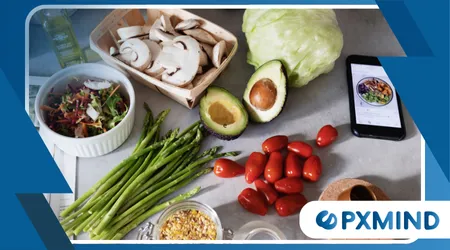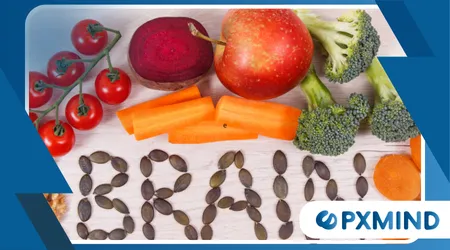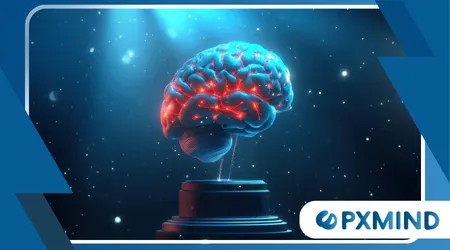The Best Brain Foods for Better Learningtr

Have you ever wondered what the best brain foods for better learning are?
Anúncios
The connection between what we eat and our cognitive function is profound, a truth increasingly confirmed by modern neuroscience.
Our brains, despite making up only a small percentage of our body weight, consume a disproportionately large amount of our daily energy.
Fueling this incredible organ with the right nutrients is not just a good idea; it’s a necessity for peak performance.
The Brain’s Nutritional Demands
Think of your brain as a high-performance engine. It doesn’t just need fuel; it needs the right kind of fuel.
Glucose is its primary energy source, but a steady supply of complex carbohydrates, healthy fats, and antioxidants is crucial for optimal function.
Without these key components, mental fog, poor memory, and difficulty concentrating can become the norm.
This isn’t just about avoiding junk food; it’s about actively seeking out foods that nourish your mind.
The Omega-3 Revolution: Essential Fatty Acids
When it comes to the best brain foods for better learning, omega-3 fatty acids top the list.
These healthy fats are fundamental for building brain cell membranes and are known to support cognitive health and memory.
The most vital omega-3s for brain health are DHA and EPA. They are anti-inflammatory and can help protect the brain from age-related decline.
A great source of these fats is fatty fish. Salmon, mackerel, and sardines are packed with the nutrients your brain craves.
A study published in the Journal of Alzheimer’s Disease in 2017 found a significant correlation between a diet rich in fish and a reduced risk of cognitive decline in older adults.
It’s a clear signal that the food we consume directly impacts our brain’s future.

Berries: Nature’s Antioxidant Powerhouses
Berries, particularly blueberries, are a delight for both the palate and the mind. They are rich in flavonoids, which have been shown to improve memory and cognitive function.
These antioxidants help reduce inflammation and oxidative stress, both of which can lead to premature brain aging.
Read more: Why Microlearning Works (and How to Use It)
Consuming a handful of berries daily can be a simple, delicious habit with significant long-term benefits for your cognitive well-being.
Leafy Greens: More Than Just a Salad
Greens like spinach, kale, and broccoli are more than just side dishes; they are nutritional powerhouses for the brain.
They contain vitamins K, Lutein, folate, and beta-carotene, all of which are linked to improved memory and reduced cognitive decline.
A daily serving of these greens can offer a simple, yet effective, strategy for maintaining a sharp mind.
Nuts and Seeds: A Snacking Solution for Success
Nuts and seeds are excellent sources of vitamin E, which acts as an antioxidant protecting brain cells from damage.
Walnuts are particularly notable, as their shape even resembles a small brain. They are packed with omega-3s, making them an ideal snack.
Read here: Why It’s Hard to Say No and How to Do It Anyway
Other nuts like almonds and pecans also offer a beneficial mix of vitamins and healthy fats.
The Gut-Brain Axis: A Surprising Connection
The health of our gut is surprisingly linked to the health of our brain. The gut-brain axis is a two-way communication system.
Fermented foods, like yogurt and kefir, and high-fiber foods promote a healthy gut microbiome.
A balanced gut can influence neurotransmitter production and reduce inflammation, supporting mood and cognitive function.
The connection is so strong that we’re only just beginning to truly understand its full implications for our mental health.
For example, imagine your digestive system as a bustling city.
++ The Link Between Gut Health and Brain Function
When the city’s infrastructure (your gut) is well-maintained and thriving, with a diverse population of good bacteria, the communication channels to the capital (your brain) are clear and efficient.
Messages flow smoothly, and your brain receives the support it needs to function optimally.
However, if the city is neglected and its roads are in disrepair, communication breaks down, leading to confusion and inefficiency.

A Sample Menu: Fueling Your Mind Throughout the Day
Knowing the best brain foods for better learning is one thing; incorporating them into your daily life is another. Here is a simple table to help guide your meal planning:
| Meal | Food Suggestion | Brain Benefits |
| Breakfast | Greek yogurt with blueberries and walnuts | Protein, probiotics, antioxidants, and healthy fats for focus |
| Lunch | Salmon salad with spinach and a lemon vinaigrette | Omega-3s and antioxidants for memory and cognitive function |
| Snack | Handful of almonds or a hard-boiled egg | Vitamin E and protein for sustained energy and brain cell protection |
| Dinner | Roasted broccoli with grilled chicken or chickpeas | Folate, vitamin K, and protein for overall brain health |
Don’t Neglect Hydration and Sleep
While nutrition is paramount, it’s only one piece of the puzzle. Proper hydration is critical for cognitive function, as dehydration can lead to fatigue and impaired concentration.
Aim for at least 8 glasses of water a day. Additionally, a full night of quality sleep is when the brain consolidates memories and clears out waste products.
Without it, even the most perfect diet won’t be enough. The combination of a nutrient-rich diet, sufficient water, and good sleep is the ultimate trifecta for a brilliant mind.
According to a 2024 survey by the American Psychological Association, only 27% of adults report feeling well-rested on most days.
This statistic highlights a significant public health issue that, when combined with poor dietary choices, can compound the negative effects on cognitive performance.
The best brain foods for better learning are not a magical cure-all, but they are a powerful tool at our disposal.
By making intentional choices about what we eat, we can provide our brain with the resources it needs to not only survive but thrive.
What small change will you make today to nourish your most vital organ?
The best brain foods for better learning can transform your life
This isn’t about dieting; it’s about a lifestyle change for better cognitive health. The foods we eat are the foundation of our mental and physical well-being.
By integrating these nutritional powerhouses into your meals, you are making a conscious investment in your brain’s future.
The journey to a sharper, more focused mind begins on your plate.
Frequently Asked Questions
Are there any specific foods to avoid for brain health?
Highly processed foods, sugary drinks, and excessive trans fats can harm brain health. They contribute to inflammation and can impair cognitive function.
Can supplements replace a healthy diet for brain health?
While some supplements can be beneficial, they are not a substitute for a balanced diet. Whole foods provide a complex mix of nutrients and fiber that supplements cannot replicate.
How quickly can I see results from changing my diet?
While some people may notice short-term improvements in focus and energy, the most significant benefits of a brain-healthy diet are seen over the long term, with consistent consumption.
